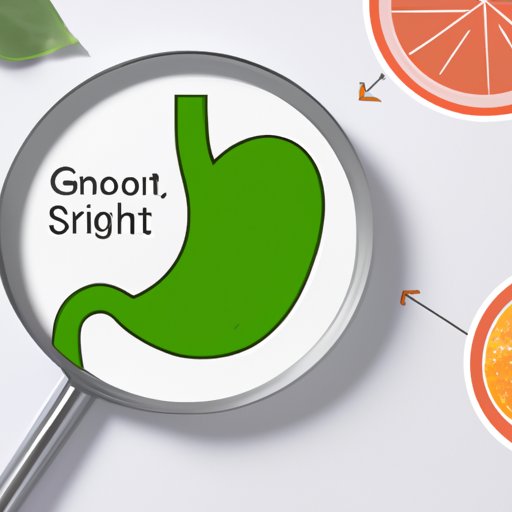
I. Introduction
Stomach viruses, also known as gastroenteritis, are a common ailment that can leave us feeling miserable and run-down. These viruses can come on quickly and cause a range of uncomfortable symptoms, including nausea, vomiting, diarrhea, and stomach pain. Although they usually pass within a few days, knowing how to manage symptoms and prevent the spread of the virus can make a big difference in our wellbeing.
This article is intended for anyone dealing with a stomach virus, or those who want to be prepared in case they or a loved one gets sick. We’ll provide natural remedies, practical tips, and expert insight into dealing with stomach viruses effectively.
II. Understanding Stomach Viruses
Stomach viruses are highly contagious and can be spread through contact with contaminated surfaces, food, or water. They can also be transmitted through airborne droplets when an infected person coughs, sneezes, or talks.
Common symptoms of a stomach virus include nausea, vomiting, diarrhea, stomach cramps, fever, and headache. These symptoms can range from mild to severe, depending on the type of virus and the strength of an individual’s immune system.
III. Natural Remedies for Stomach Viruses
While some people may opt for over-the-counter medications, there are many natural remedies that can help ease stomach discomfort and boost the immune system.
Ginger tea is a popular option for soothing digestive issues, as it has natural anti-inflammatory properties that can help reduce nausea and vomiting. To make ginger tea, simply steep fresh ginger in hot water for several minutes and add a squeeze of lemon and a drizzle of honey for added flavor.
Turmeric supplements are another natural remedy that can help improve digestive health and boost the immune system. Turmeric contains curcumin, a compound that has been shown to have anti-inflammatory, antioxidant, and antibacterial properties that can help alleviate stomach viruses. You can find turmeric supplements at most health food stores and online retailers.
IV. Hydration and Diet
Staying hydrated is essential when dealing with a stomach virus, as vomiting and diarrhea can quickly deplete the body’s fluids. Drinking plenty of water, clear broth, or herbal tea can help replace lost fluids and reduce the risk of dehydration.
Choosing the right foods to eat can also make a big difference in recovery time and overall health. Foods that are easy to digest, nutrient-rich, and low in fat and fiber are recommended. Some examples include bananas, rice, applesauce, toast, boiled potatoes, and steamed vegetables.
V. Preventing the Spread of Stomach Viruses
Preventing the spread of stomach viruses is essential for protecting others and reducing the risk of getting re-infected. The following practices can help prevent the spread of the virus:
- Wash hands frequently with soap and warm water for at least 20 seconds.
- Disinfect surfaces that may be contaminated, such as doorknobs, light switches, and countertops.
- Avoid close contact with others while sick and avoid sharing personal items such as utensils, towels, and bedding.
VI. Personal Accounts of Dealing with Stomach Viruses
Dealing with a stomach virus can be a challenging and unpleasant experience. Hearing personal accounts of how others have managed their symptoms and recovered can be a helpful source of inspiration and guidance. Some people find that rest, hydration, and natural remedies work best for them, while others need medical attention and prescription medication to recover quickly. Sharing personal accounts can help reduce the stigma and isolation associated with stomach viruses and provide a sense of community and support.
VII. Expert Insight
For more severe cases of stomach viruses, medical attention may be necessary. We spoke with medical professionals for expert insight on dealing with stomach viruses. They recommend seeking medical attention if symptoms persist for more than a few days, if there is blood in the stool or vomit, if there are signs of dehydration such as weakness and dry mouth, or if an individual has a weakened immune system or a pre-existing medical condition that may exacerbate their symptoms. Prescription medications such as anti-nausea drugs, antibiotics, and antivirals may be prescribed in severe cases.
VIII. Conclusion
Dealing with a stomach virus can be a daunting experience, but there are many natural remedies, practical tips, and expert insights that can help manage symptoms and promote recovery. Staying hydrated, choosing the right foods, and practicing good hygiene can go a long way in preventing the spread of the virus and protecting our overall health.





